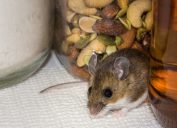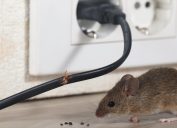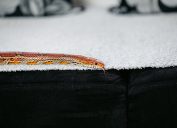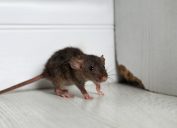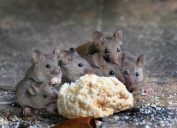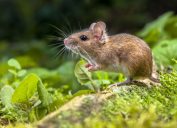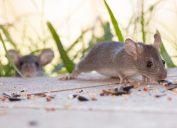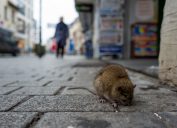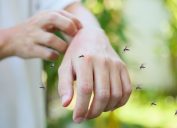10 Cleaning Habits That Attract Mice to Your Home
These common habits could land you with a serious pest infestation before you know it.
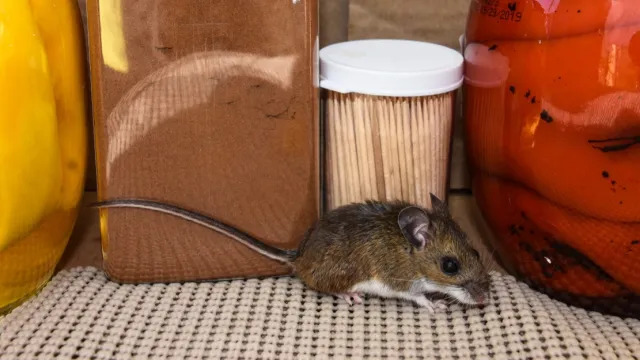
Cleaning your home can often feel like a thankless task. It's tiring and frustrating, and the second you feel like you've finished one project, another mess rears its ugly head. However, if you're avoiding specific cleaning tasks—or doing them in certain ways—clutter and dust could soon be the least of your worries. According to pest control experts, certain cleaning habits could be attracting mice to your home.
RELATED: 11 Cleaning Habits That Are Attracting Snakes to Your Home.
1
You store food in plastic bags.

Sure, stashing a sealed sandwich bag of leftover snacks in your pantry may seem like a good way of keeping a potential mess contained, but that habit could leave you with a mouse problem before you know it.
"Mice are constantly looking for sources of food, so to avoid attracting them, it's crucial to ensure that you haven't left any food out in the open or stored in unsealed containers," says Scot Hodges, a certified entomologist and pest expert with Arrow Exterminators.
Lorne Hanewich, corporate trainer at Clark's Termite & Pest Control, suggests investing in glass or metal containers with secure lids for storing food items. "Label containers with expiration dates to ensure you use food before it goes bad, reducing the chances of attracting rodents with stale food," she adds.
RELATED: 5 Smells That Mean Mice Have Invaded Your Home.
2
You don't vacuum frequently.
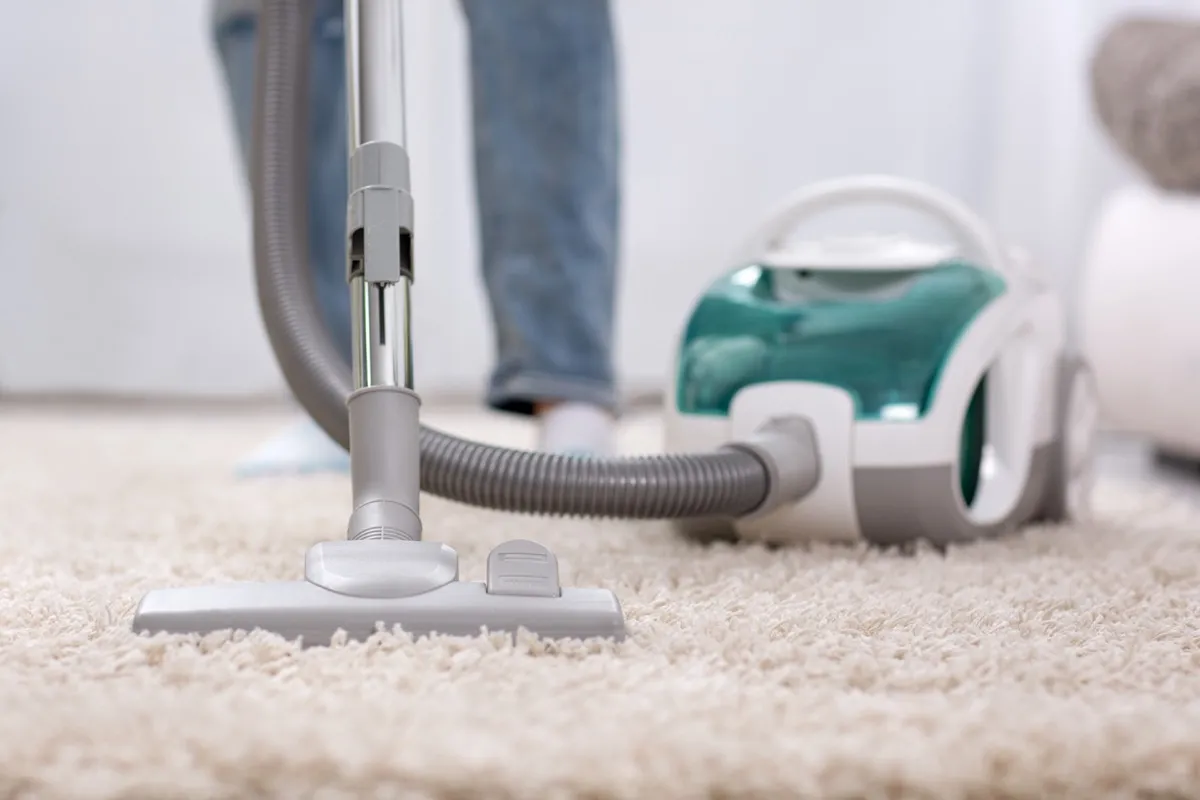
Vacuuming may not be the most enjoyable chore you do all week, but it's an essential one if you want to fend off pests.
"Keeping your floors clean, whether carpet or hard surface, is vital in preventing mice. The slightest trace of crumbs or food spillage on the floor can attract rodents, so be sure to vacuum frequently and clean up any spills in your home as soon as possible," says Hodges.
3
You leave dishes soaking in the sink.
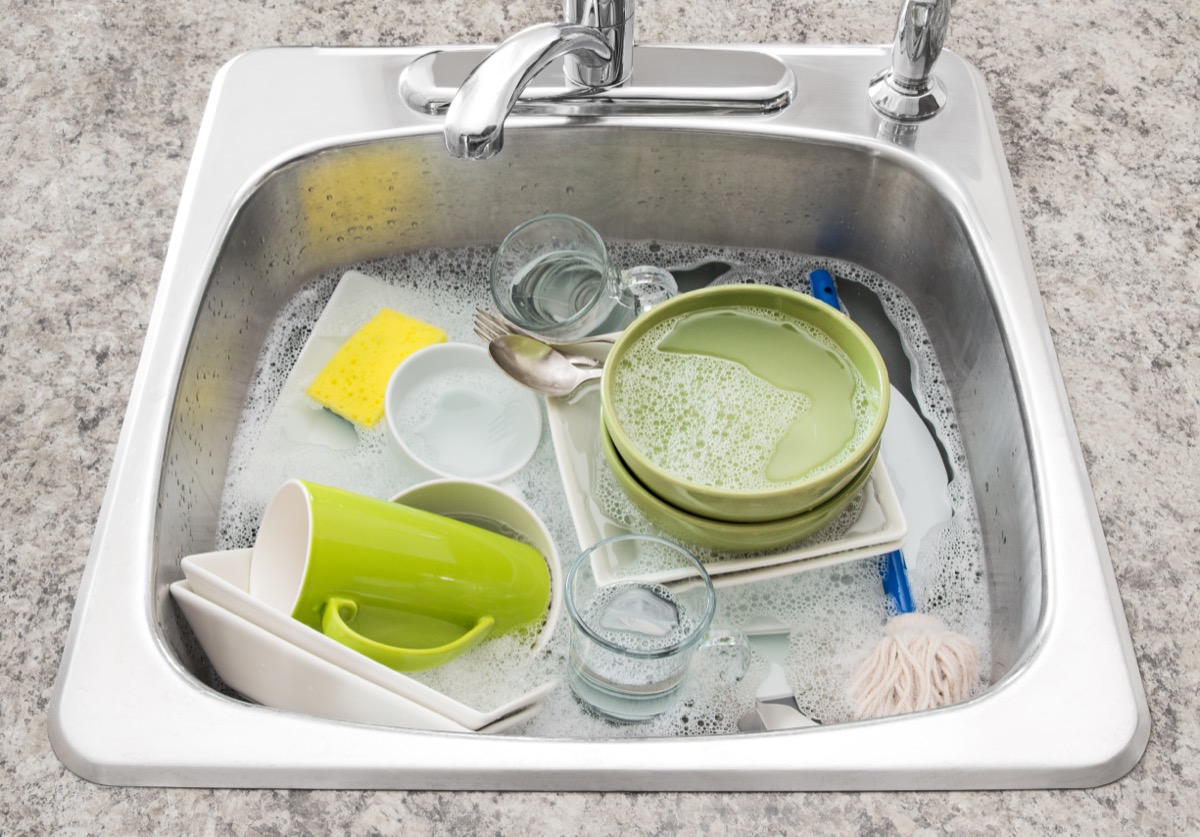
Leaving your dishes to soak overnight in your sink may make them easier to clean the following morning, but it could also make your space more attractive to pests.
"An open water source is a factor that makes mice come back, so make sure to cover any possible water source," recommends Ethan Howell, co-owner of Florida Environmental Pest Management.
4
You leave your laundry in piles before putting it away.
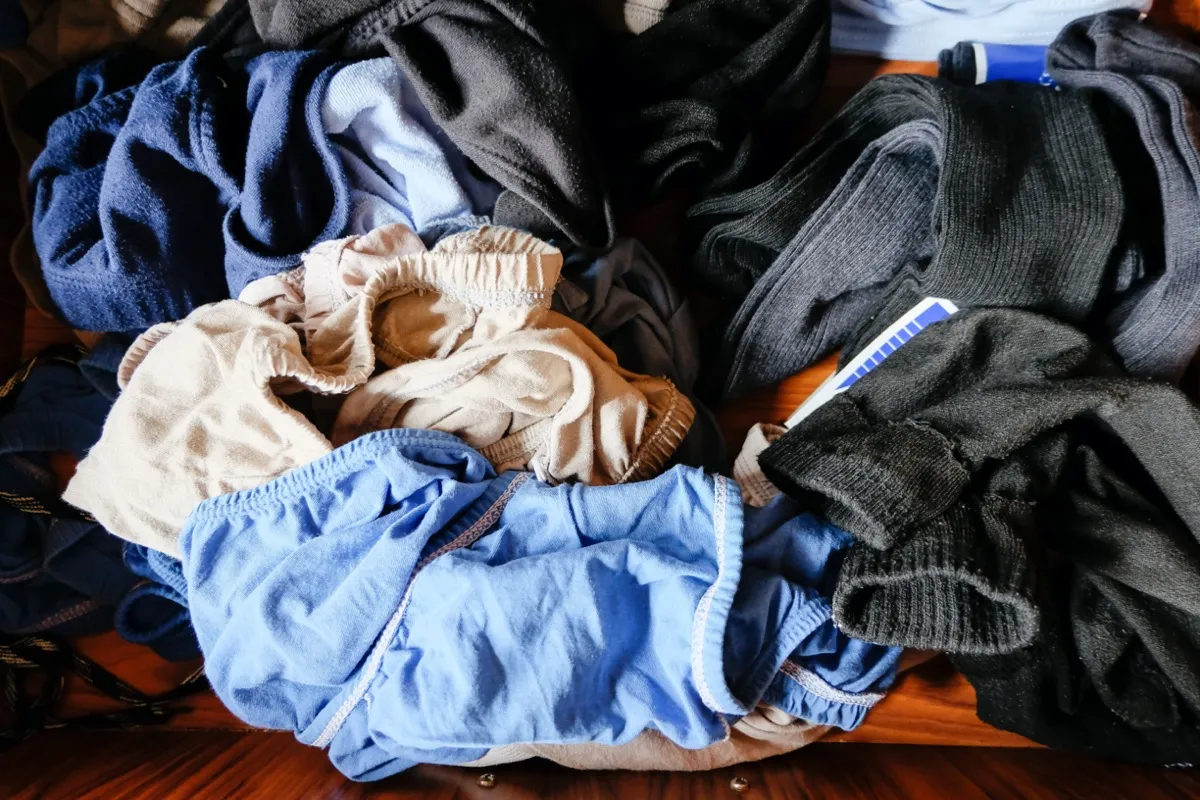
Sorting and putting away laundry can take a surprisingly long time, leading many people to leave their clean clothes in hampers or piles for days at a time—and doing so could be making your space a haven for pests.
RELATED: 8 Foods That Are Attracting Mice Inside Your Home.
5
You use cardboard boxes to organize your basement.
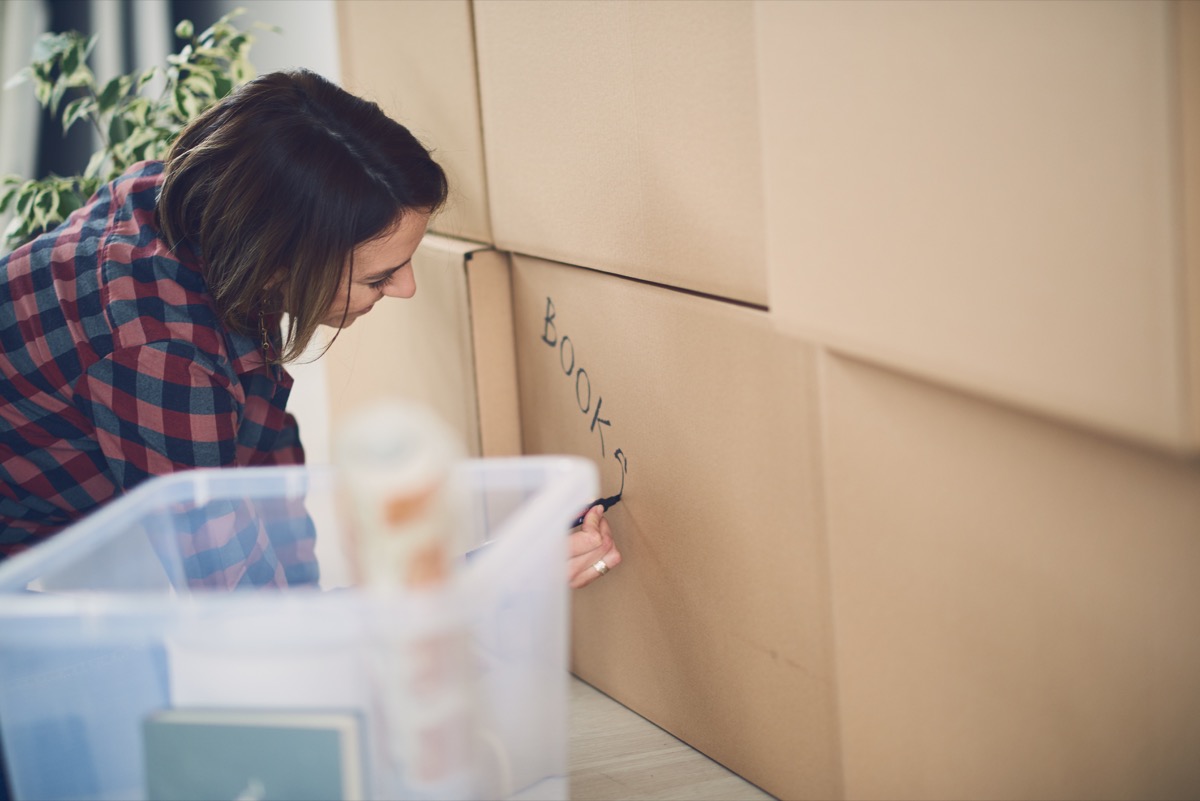
If you're using cardboard boxes to keep clutter at bay in your basement, it may not be long before mice make their way into your space.
"Store items in durable plastic bins with tight lids rather than cardboard boxes, as rodents can chew through cardboard," says Hanwich.
"These dark spaces give rodents the opportunity to create a nest out of view of humans and make your home their own," adds Richard Estrada, owner of ATCO Pest Control
6
You leave pet food out overnight.

If your kitchen is an all-night buffet for your cat or dog, it serves the same purpose for mice, too.
"If food is left on the ground, mice can easily seek it out and invade your home to try and get to it," says Estrada. "Make sure to keep pet food in an airtight container and to clean up animal bowls when they're not eating."
7
You don't take out your trash frequently enough.
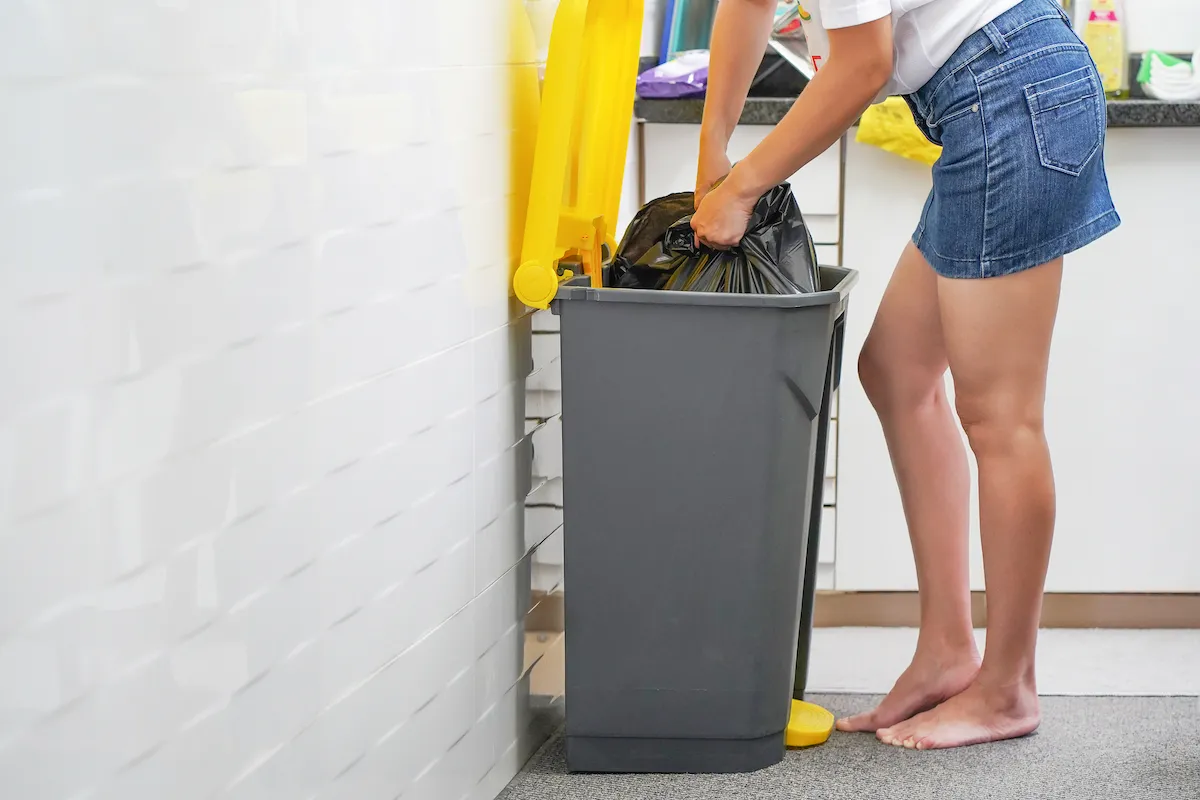
If you think tying up your trash bag is enough to keep mice out, think again.
"Mice have a great sense of smell and can fit through exceptionally small spaces, so even if it just seems like a few small crumbs, it's important to clean or rinse out your trash cans and keep them lined with bags," explains Meg Pearson, training manager at Critter Control.
"Plastic bags offer no challenge to hungry mice. Make sure that your trash, especially food waste, is in a tightly sealed container and regularly dispose of it," says Nancy DeWitt, owner of Patriot Pest & Termite Control Co. It helps if the trash bags are tear-resistant and tightly sealable.
RELATED: 8 Plants Attracting Mice to Your Home.
8
You're not cleaning the dryer vent.
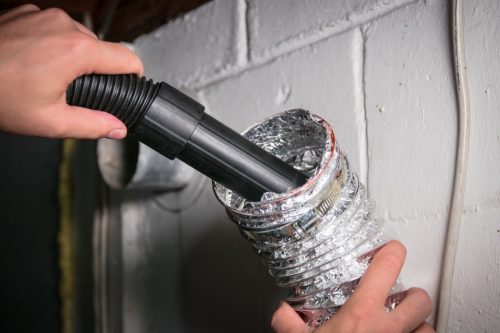
When you forget to clean lint out of the dryer vent, you're not only risking potential fires, but you're also leaving space for unwelcome pests.
"Lint makes a wonderful nesting material and will be readily collected by nesting mice," says Craig Sansig, service director at Viking Pest Control. "Pregnant mice may actually show a preference for nesting materials over food later in their pregnancy."
9
You don't get rid of old food.

Not cleaning out your pantry or refrigerator can unknowingly invite mice into your home.
"Regularly cleaning out your refrigerator and pantries for expired food is important, as these items can release even stronger or more compelling scents attracting mice," says Pearson.
It's also important to clean the area under stoves and fridges. Chris Call, New York region manager at Fox Pest Control, says that over time, crumbs and food debris can accumulate on and under appliances and provide food sources for pests.
10
You aren't maintaining your yard.

Outdoor cleaning is just as important as chores inside the house when it comes to keeping mice away. Hanewich suggests moving piles of wood and debris that rodents can use for shelter. She also recommends landscaping with rodent-resistant plants and keeping grass and bushes trimmed.
Sansig adds that you'll want to keep your lawn maintenance up even when the weather gets colder. "While the weeds may not have survived the first frost, the seeds may remain and provide a food source for mice. It is always best to remove weeds to help reduce the natural forage outdoors and ultimately reduce exterior rodent pressure on your home," he says.
For more pest advice sent to your inbox, sign up for our daily newsletter.

